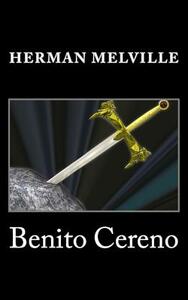Take a photo of a barcode or cover
"When to this is added the docility arising from the unaspiring contentment of a limited mind and that susceptibility of blind attachment sometimes inhering in indisputable inferiors, one readily perceives why those hypochondriacs, Johnson and Byron—it may be, something like the hypochondriac Benito Cereno—took to their hearts, almost to the exclusion of the entire white race, their serving men, the negroes, Barber and Fletcher. But if there be that in the negro which exempts him from the inflicted sourness of the morbid or cynical mind, how, in his most prepossessing aspects, must he appear to a benevolent one? When at ease with respect to exterior things, [pg 201]Captain Delano's nature was not only benign, but familiarly and humorously so. At home, he had often taken rare satisfaction in sitting in his door, watching some free man of color at his work or play. If on a voyage he chanced to have a black sailor, invariably he was on chatty and half-gamesome terms with him. In fact, like most men of a good, blithe heart, Captain Delano took to negroes, not philanthropically, but genially, just as other men to Newfoundland dogs."
The unironic musings of our gentlemen protagonist. This is not a good enough piece of literature to make the enraging and profound and consistent racism (with a touch of anti-semitism) in any way worth finishing, although I unfortunately did. Only 86 pages but still just not worth it unless you want a glimpse into how compartmentalized otherwise smart people like Melville were when it came to racism. Comparing black women to wild animals, referring to black people as a different species from white people. And making the slavers heroes and slaves fighting for their freedom disgusting villains.
The unironic musings of our gentlemen protagonist. This is not a good enough piece of literature to make the enraging and profound and consistent racism (with a touch of anti-semitism) in any way worth finishing, although I unfortunately did. Only 86 pages but still just not worth it unless you want a glimpse into how compartmentalized otherwise smart people like Melville were when it came to racism. Comparing black women to wild animals, referring to black people as a different species from white people. And making the slavers heroes and slaves fighting for their freedom disgusting villains.
dark
mysterious
tense
Herman Melville debe de ser el único escritor que me haya hecho disfrutar una historia situada en el mar/sobre marineros.
Terrible until about 25 pages in when the pirate story begins. I was about to give it one star until then when it improved greatly. I wouldn't give it higher than three stars though because it was extremely predictable due to the author's hints and details. Teachable if focusing on similes or foreshadowing and have motivated students who will look up difficult vocabulary and sailing references.
Worth your time reading, but the court testimony near the end is super unnecessary and resolves a lot of ambiguity I thought was better unresolved. Interesting antislavery(ish) novella from the 1800s, good sailor aesthetic and a bit gothic
Beautiful writing, as expected, though it deals with quite a lot of racism. How well it deals with that is probably quite debatable. The first two thirds were atmospheric and mysterious but the last third felt completely different and I didn’t like it nearly as much.
I liked this book well enough. I enjoyed a lot of Melville's descriptions, but the style of the story was kind of different.
I actually might go back and reread the book after finding out what happened. I won't spoil anything, but it'd be interesting to reread it know what happens.
Ultimately I would recommend it because it's a different read. If you're curious about Melville, I think this is a good way to get your toes wet because it's less than 100 pages long.
I actually might go back and reread the book after finding out what happened. I won't spoil anything, but it'd be interesting to reread it know what happens.
Ultimately I would recommend it because it's a different read. If you're curious about Melville, I think this is a good way to get your toes wet because it's less than 100 pages long.
challenging
dark
sad
tense
slow-paced
Plot or Character Driven:
A mix
Strong character development:
Complicated
Loveable characters:
No
Diverse cast of characters:
Complicated
Flaws of characters a main focus:
Complicated
This story demands spoilers. A fan of Melville's works "Bartleby the Scrivener" (one of my favorite shorts) and Moby Dick I became interested in reading this after seeing it recommended as a horror story — specifically in Marvin Kaye's introduction to Dracula.
More than halfway through the story I needed a reminder, "Why was I reading this?" and "Was it really supposed to be horror?"
The story seemed a dull cross between Moby Dick and Amistad with unsettling racism.
It helps greatly to know that the story has a surprise ending and its genius is in its use of point of view.
It is in fact a retelling of the historical events of the slave revolt aboard the Amistad. However, it's told in the perspective of Captain Delano, an American whaler who spies the slave ship adrift and brings it aid. The blacks, now in command of the ship, force the slaver's captain, Don Benito — who has seen his shipmates slaughtered — to pretend he and the few remaining Spaniards retain control of the ship.
Delano is completely deceived by the ruse. He sees only what he expects to see: submissive blacks and stereotypes. At all times while aboard the slaver, he is in great peril. His usual treatment of blacks could now cost him his life. This is a terrifying time for Benito, but Delano's bliss insulates him. In retrospect, however, his ignorance is frightening.
On first reading, without the knowledge of the danger, cloaked in Delano's bland narrative of ordinary events (When things strike him as odd, he's quick to make excuses.) the story slogs along. However, the story masters the trick of demanding a second reading once the twist is revealed. Understanding the peril creates tension and makes the story far more engaging.
The payoff is in the dialog between the two captains at the very end and the frisson of terror at the revelation (like the montage ending of a horror movie when you see all of the perilous moments the heroes avoid, all that conspired against them, and how they were deceived). Like "Bartleby the Scrivener," the story inspires thought. There are many perspectives and ideas to ponder here.
Melville scholars have studied this story to get a better handle on the author's view of races, but have been frustrated by its enigmatic nature. It provides an empathetic exploration of race relations and seems to have relevance today to the ongoing issue of institutionalized racism (the misperception by the dominant culture —if the issue goes unexamined — that the current system works and everyone is content). The author appears to write from a humanitarian perspective well ahead of his time.
Now Kaye's introduction makes sense, "Like Herman Melville's harrowing horror story "Benito Cereno," it (Dracula) begins with tragic blindness and ends with tragic vision." It's all in the point of view.
More than halfway through the story I needed a reminder, "Why was I reading this?" and "Was it really supposed to be horror?"
The story seemed a dull cross between Moby Dick and Amistad with unsettling racism.
It helps greatly to know that the story has a surprise ending and its genius is in its use of point of view.
It is in fact a retelling of the historical events of the slave revolt aboard the Amistad. However, it's told in the perspective of Captain Delano, an American whaler who spies the slave ship adrift and brings it aid. The blacks, now in command of the ship, force the slaver's captain, Don Benito — who has seen his shipmates slaughtered — to pretend he and the few remaining Spaniards retain control of the ship.
Delano is completely deceived by the ruse. He sees only what he expects to see: submissive blacks and stereotypes. At all times while aboard the slaver, he is in great peril. His usual treatment of blacks could now cost him his life. This is a terrifying time for Benito, but Delano's bliss insulates him. In retrospect, however, his ignorance is frightening.
On first reading, without the knowledge of the danger, cloaked in Delano's bland narrative of ordinary events (When things strike him as odd, he's quick to make excuses.) the story slogs along. However, the story masters the trick of demanding a second reading once the twist is revealed. Understanding the peril creates tension and makes the story far more engaging.
The payoff is in the dialog between the two captains at the very end and the frisson of terror at the revelation (like the montage ending of a horror movie when you see all of the perilous moments the heroes avoid, all that conspired against them, and how they were deceived). Like "Bartleby the Scrivener," the story inspires thought. There are many perspectives and ideas to ponder here.
Melville scholars have studied this story to get a better handle on the author's view of races, but have been frustrated by its enigmatic nature. It provides an empathetic exploration of race relations and seems to have relevance today to the ongoing issue of institutionalized racism (the misperception by the dominant culture —if the issue goes unexamined — that the current system works and everyone is content). The author appears to write from a humanitarian perspective well ahead of his time.
Now Kaye's introduction makes sense, "Like Herman Melville's harrowing horror story "Benito Cereno," it (Dracula) begins with tragic blindness and ends with tragic vision." It's all in the point of view.




